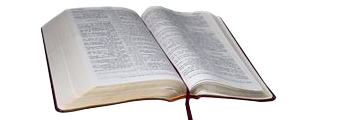
CHURCH OF THE BRETHREN NETWORK
Continuing the work of Jesus : Peacefully ~ Simply ~ Together
UNOFFICIAL WEBSITE OF THE CHURCH OF THE BRETHREN

 |
CHURCH OF THE BRETHREN NETWORK Continuing the work of Jesus : Peacefully ~ Simply ~ Together UNOFFICIAL WEBSITE OF THE CHURCH OF THE BRETHREN |
 |
 |
The following terms reflect the culture of the Church of the Brethren, a denomination grounded on the principles of Anabaptism and founded through the Pietist efforts of Alexander Mack, in the summer of 1708 near the small German village of Schwarzenau. This resource is not an exhaustive compilation of all denominational terminology, which might also be garnered from other Brethren works, such as the Brethren Encyclopedia, Brethren Bibliography, European Origins, Brethren in America, Ephrata Cloister, 19th Century Acculturation, Brethren Timeline, Brethren Groups, and Brethren Genealogy. You are encouraged to share your comments, suggestions, or corrections with the Web Administrator.
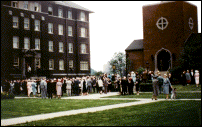 |
| Bowman Chapel Chicago, Illinois Photo: Rev. Forrest Gordon |
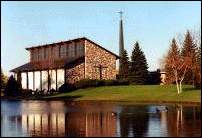 |
| Nicarry Chapel Oakbrook, Illinois Photo: David Shetler |
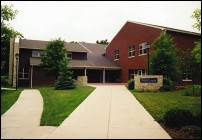 |
| Chapel & Classrooms Richmond, Indiana Photo: Ron Gordon |
Ministerial candidates in the Church of the Brethren may seek training for service in various ways, one of which is at the denomination's theological school located on its newly acquired campus at Richmond, Indiana, in association with the Earlham School of Religion. Bethany Theological Seminary offers several platforms of higher education such as graduate and non-degree programs, foreign study tours, along with Academy programs for continuing educational training, plus specialized workshops and field opportunities.
But equipping the church for leadership requires more than academic curriculum and the dispensing of knowledge, it needs to develop men and women of faith through personal growth and cross cultural experiences who discern a keener vision of Christ's mission for our world. Service and ministry in a world of diverse cultures also requires bridges of understanding. Bethany encourages awareness of diversity in the learning process through study tours to foreign countries, and the presence of international students on campus. Bethany also reaches out directly to congregations with opportunities for education through workshops and specialized courses.
Bethany was co-founded by Albert Cassel and Emmanuel Hoff, two men who grew up in the same congregation, but at different times. Hoff was born in 1860 in northern Ohio, but his family moved from the Beech Grove (Chippewa) Church of the Brethren to Iowa. Hoff later graduated from Mount Morris College in Illinois. Wieand was born in 1871 and his German Reformed parents also joined the Brethren at Chippewa because of a deep impression for the Brethren love feast. Wieand studied at Juniata College and then taught at McPherson. During a leisurely campus stroll, the two men happened to met, and developed a friendship that would later blossom in the founding of a Brethren school to train ministers. Wieand had the early inspiration to create the training school. It became a passion with him, for it is said that he dreamed about it 'out loud' to anyone who would listen. Prompted by a 1893 Gospel Messenger article that mentioned of a Brethren student at D.L. Moody Institute of Chicago, Wieand grew concerned that Brethren might seek education in schools outside the denomination, and thus forget traditional Brethren principles and teachings. Higher education with advanced theological education was not popular with most German Baptist Brethren of the last century. In the Annual Meeting of 1882, heated discussion resolved that Brethren should not even fellowship with persons that were disposed towards formal college training. It was a different culture and religious climate that would prove to be a formidable exercise in persuasion for Wieand and Hoff.
Ultimately it was a mixture of both their efforts combined with a progressive sensitivity among the Brethren that young ministers should have a more formal theological understand of the Bible. Brethren. Wieand and Hoff were able to mold the school, one administrative decision at a time, to develop a curriculum and program that would be distinctly created along Brethren principles. Although the Hasting Street property served to officially launch Bethany Bible School, it was obvious to Wieand and Hoff from the very beginning, that it could only be temporary. Wieand later discovered a more suitable lot on Van Buren Street, and they began raising the necessary funds to buy properties from the surrounding land owners. In 1909 the first building was erected on the school's second campus at 3435 West Van Buren Street, and recognition by the Church of the Brethren Annual Conference came the same year, followed by an action in 1925 to establish a more direct affiliation with the Conference. Rapidly expanding enrollment necessitated further construction, which was achieved through much prayer and sacrifice. The first Bachelor of Divinity degree was granted in 1913. The name of the school was officially changed in 1931 to Bethany Biblical Seminary. As declared in the articles of incorporation, the objective of the Seminary was "to promote the spread and deepen the influence of Christianity by the thorough training of men and women for the various forms of Christian service, in harmony with the principles and practices of the Church of the Brethren.
In 1957, the Board of Trustees approved the relocation of the seminary to an area near the city of Oak Brook, Illinois. In June of 1963 the official title of the school was changed to Bethany Theological Seminary to more properly represent it's now wider curricula, and the seminary commenced to enjoy life on it's new and third campus in the fall of that year. This new campus offered modern facilities for resident students to live, more up to date and larger classrooms for instruction, and a general suburban location that offered a more conducive atmosphere for learning, including it's own lake. But economic hardships would altimately face the school over the next thirty years. In 1992, Bethany leadership approached Brethren Benefit Trust for a loan that would allow them to relocate to a more economically feasible campus, and the very next year the school began sharing the campus of Earlham School of Religion in Richmond, Indiana. To further serve the needs of prospective students of the denomination, considering that the greatest percentage of Brethren live near Pennsylvania, the Seminary opened an off-site extension program known as the Susquehanna Valley Satellite on the campus of Elizabethtown College in October 1993. Two graduate degrees are now offered, Master of Divinity and Master of Arts, and the Seminary periodically invites the general public to attend workshops for training by either resident professors or guest instructors. Learn still more about
 Bethany Theological Seminary
Bethany Theological Seminary615 National Road West Richmond, Indiana 47374 |
|
There are six collegiate institutions that are affiliated with the Church of the Brethren. None are owned by the denomination, but most of the founding personages were Brethren. Each institution continues to work in harmony with the Church of the Brethren and presents a full exhibit of sample materials and interpretative brochures at Annual Conference.
 Bridgewater College evolved from the former Spring Creek Normal School, which was founded in 1880 under the leadership of Daniel Flory. The school was originally located at Spring Creek, Virginia, but moved a few miles east to Bridgewater in 1882, just in time for the fall semester. It was incorporated by the State of Virginia in 1884, the name of the school was changed to Bridgewater College in 1889 after revising it's charter, and became an accredited four-year college by the Virginia State Board of Education in 1916. It is a co-educational institution with an enrollment near 1,000.
Bridgewater College evolved from the former Spring Creek Normal School, which was founded in 1880 under the leadership of Daniel Flory. The school was originally located at Spring Creek, Virginia, but moved a few miles east to Bridgewater in 1882, just in time for the fall semester. It was incorporated by the State of Virginia in 1884, the name of the school was changed to Bridgewater College in 1889 after revising it's charter, and became an accredited four-year college by the Virginia State Board of Education in 1916. It is a co-educational institution with an enrollment near 1,000.
 Elizabethtown College officially opened for classes on November 13, 1900, at the corner of South Market and Bainbridge streets in Elizabethtown, Pennsylvania. Elders of the German Baptist Brethren of Pennsylvania Eastern district were invited in 1898 to attend a meeting for the expressed purpose of founding an institution of higher education, and a committee subsequently recommended Elizabethtown as their choice location. The school was moved to the east side of town in January of the following year, and came under ownership of the Eastern Pennsylvania district of the Church of the Brethren in 1917. For the first two decades it also operated an academy for high-school students, and received full accreditation for issuing baccalaureate degrees from the State Council on Education in 1921. Several building and renovation initiatives during the 1950s / 1960s greatly increased the size of the campus. This strengthened its academic program, which offers study in almost forty major pursuits. It is a co-educational institution with an enrollment near 1,500 (largest of the six colleges).
Elizabethtown College officially opened for classes on November 13, 1900, at the corner of South Market and Bainbridge streets in Elizabethtown, Pennsylvania. Elders of the German Baptist Brethren of Pennsylvania Eastern district were invited in 1898 to attend a meeting for the expressed purpose of founding an institution of higher education, and a committee subsequently recommended Elizabethtown as their choice location. The school was moved to the east side of town in January of the following year, and came under ownership of the Eastern Pennsylvania district of the Church of the Brethren in 1917. For the first two decades it also operated an academy for high-school students, and received full accreditation for issuing baccalaureate degrees from the State Council on Education in 1921. Several building and renovation initiatives during the 1950s / 1960s greatly increased the size of the campus. This strengthened its academic program, which offers study in almost forty major pursuits. It is a co-educational institution with an enrollment near 1,500 (largest of the six colleges).
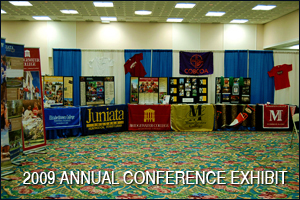
 Juniata College is the oldest of the six colleges that are affiliated with the Church of the Brethren. It was the venture of three central Pennsylvania men of the Brumbaugh family who advocated the establishment of an institution of higher educational for Brethren. It officially opened for classes on April 17, 1876 as the Huntingdon Normal School and then changed to Brethren's Normal College two years later, and finally to Juniata College in 1894 (from the nearby Juniata River). The school received full accreditation from the Commonwealth of Pennsylvania in 1896. It is a co-educational institution with an enrollment near 1,300.
Juniata College is the oldest of the six colleges that are affiliated with the Church of the Brethren. It was the venture of three central Pennsylvania men of the Brumbaugh family who advocated the establishment of an institution of higher educational for Brethren. It officially opened for classes on April 17, 1876 as the Huntingdon Normal School and then changed to Brethren's Normal College two years later, and finally to Juniata College in 1894 (from the nearby Juniata River). The school received full accreditation from the Commonwealth of Pennsylvania in 1896. It is a co-educational institution with an enrollment near 1,300.
 La Verne, University of was founded by members of the Church of the Brethren under the name of Lordsburg College in 1891. The Church of the Brethren Pacific Southwest District (California - Arizona) took over the administration of the school in 1908, and both the name of the town and the college were changed to La Verne in 1917. First known as La Verne College, accreditation was received by the California Board of Education in 1927, and administrative control was transferred in 1933 to an independent board of trustees. Following accreditation by the Western College Association in 1955, the school engaged in a vigorous program of innovation during the 1960s with new major program's of study being introduced, such as, the introduction of off-campus degree programs in 1969, addition of a law school in 1970, and the American Armenian International College in 1976, plus a name change in 1977 to the University of La Verne. It is a co-educational institution with an enrollment near 1,400.
La Verne, University of was founded by members of the Church of the Brethren under the name of Lordsburg College in 1891. The Church of the Brethren Pacific Southwest District (California - Arizona) took over the administration of the school in 1908, and both the name of the town and the college were changed to La Verne in 1917. First known as La Verne College, accreditation was received by the California Board of Education in 1927, and administrative control was transferred in 1933 to an independent board of trustees. Following accreditation by the Western College Association in 1955, the school engaged in a vigorous program of innovation during the 1960s with new major program's of study being introduced, such as, the introduction of off-campus degree programs in 1969, addition of a law school in 1970, and the American Armenian International College in 1976, plus a name change in 1977 to the University of La Verne. It is a co-educational institution with an enrollment near 1,400.
 Manchester University was incorporated from the former Roanoke Classical Seminary founded in 1860 by members of the United Brethren Church in Roanoke, Indiana. It was moved to North Manchester, Indiana, in 1889, and acquired by the Church of the Brethren in 1902. It was first incorporated as the College and Bible School in 1895. Presently it is governed by a board of trustees, some of whose members are elected by various Church of the Brethren districts. Accreditation was received by the State of Indiana in 1932. Manchester was the first Brethren affiliated college to offer a Peace Studies program in 1948. It is a co-educational institution with an enrollment near 1,100.
Manchester University was incorporated from the former Roanoke Classical Seminary founded in 1860 by members of the United Brethren Church in Roanoke, Indiana. It was moved to North Manchester, Indiana, in 1889, and acquired by the Church of the Brethren in 1902. It was first incorporated as the College and Bible School in 1895. Presently it is governed by a board of trustees, some of whose members are elected by various Church of the Brethren districts. Accreditation was received by the State of Indiana in 1932. Manchester was the first Brethren affiliated college to offer a Peace Studies program in 1948. It is a co-educational institution with an enrollment near 1,100.
 McPherson College was founded in August of 1887, and opened for classes the following year on September 5, 1888. It was the first of the Brethren affiliated colleges to include a biblical studies program as apart of its origination, and the first to request a direct relationship with the Church of the Brethren. McPherson has a strong agricultural department that was strengthened by the acquisition of a one hundred fifty acre farm in 1909. Accreditation was then received in 1921 from the North Central Association of Colleges. Presently, a board of trustees includes some Brethren from the surrounding church districts. Since it is the only Brethren affiliated institution in the mid-west, McPherson serves a wider geographic region than the other five colleges, with a prospective area of coverage from the Pacific coast to the Mississippi River, and from Canada to Mexico. It is a co-educational institution with an enrollment near 500.
McPherson College was founded in August of 1887, and opened for classes the following year on September 5, 1888. It was the first of the Brethren affiliated colleges to include a biblical studies program as apart of its origination, and the first to request a direct relationship with the Church of the Brethren. McPherson has a strong agricultural department that was strengthened by the acquisition of a one hundred fifty acre farm in 1909. Accreditation was then received in 1921 from the North Central Association of Colleges. Presently, a board of trustees includes some Brethren from the surrounding church districts. Since it is the only Brethren affiliated institution in the mid-west, McPherson serves a wider geographic region than the other five colleges, with a prospective area of coverage from the Pacific coast to the Mississippi River, and from Canada to Mexico. It is a co-educational institution with an enrollment near 500.
The denominational agency responsible for administering financial programs, such as pension plans, investment benefits, foundations, insurance services, finance, legal guidance, employee benefits, and gift management. Founded in 1943 as the Pension Board, it has been generally known for the Brethren Foundation, an investment program of retirement assets originally established for pastors and missionaries. Brethren Benefit Trust was created several years later to administer the Foundation and also provide other financial employee products. BBT is a reportable agency to the Annual Conference.
It was first published by the Brethren's Book and Tract Work about 1887, and printed in Messenger for a brief period of time. A revised edition of the card was reviewed by Annual Conference in 1923, with the provision that it must not be considered a creed (see also Minutes of 1923-1944, pp. 7-8). The Brethren’s Card was widely disseminated in former years, but it rarely appears now in official denominational literature because many Brethren stress the need to be open to continuing revelation from the inspiration of the Holy Spirit, with a special emphasis on studying the New Testament and particularly the teachings of Christ. Brethren have traditionally sought after the 'mind of Christ' as explained by Apostle Paul in 1 Corinthians 2:16: “For who hath known the mind of the Lord, that he may instruct him? But we have the mind of Christ.”
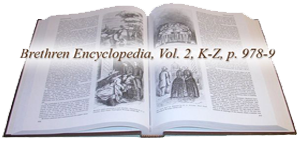
A four volume, 2,900+ page encyclopedia of Brethren life, belief, practice, and history with extensive index. The original three volues were compiled in 1983-1984, spanning Brethren heritage from the original formation in 1708 until about 1980, and a fourth was added to incorporate developments, fresh updates, and corrections, from 1980 to 2000. The careful researcher, student, or Brethren enthusiast will enjoy over 6,000 articles on almost every facet of Brethren thought, culture, theology, history, districts, congregations, significant personages, organizations, and agencies.
This comprehensive work of reference containing more than 230 articles on family history, exhaustive compilation of anabaptism and German pietism has resulted in the growth of the Church of the Brethren, Brethren in Christ, and Mennonites. There are extensive listings, indexes, biographies, illustrations, and even brief histories of local churches. It contains the most up-to-date information ever assembled on the six major Brethren bodies, and many illustrations never before published.
Church of the Brethren repository of official papers, records, genealogical data, photographs, histories, and several denominational publications. The Library is located at the General Offices in Elgin, Illinois, and is open to the general public for research. Because many genealogists use it's facilities, BHLA completed in 1996, the indexing of the obituaries of the Gospel Messenger, the primary periodical for the Church of the Brethren. This massive project took eight years to complete. When printed out, the index is over 3700 pages long, and will eventually be available on CD-ROM.
BHLA is open to the public, Monday through Friday, from 9:00 a.m. to noon and 1:00 to 4:00 p.m. Those coming to do genealogical research should call in advance, because BHLA currently has only one employee and is usually closed when that person is out of town.
BHLA also responds to genealogical requests received by mail, phone, e-mail, or fax. Several years ago BHLA began charging for the time spent working on genealogical requests. The rate is $25.00 per hour. This charge was put in place because the Church of the Brethren General Board could no longer continue to underwrite the costs of providing free genealogical research. However, there is no charge for coming to BHLA to do your own research.
Please note that one service which BHLA does not provide is the loaning of books and records. This policy was established by the Brethren Historical Committee, because BHLA serves as the historical library for the denomination, and they cannot take the chance of losing items which are irreplaceable.
|
Brethren Historical Library 1451 Dundee Avenue Elgin, Illinois 60120 |
|
|
Located in the General Offices, Brethren Press is the entity responsible for issuing most denominational publications, identifying curriculum expectations, strategizing various methods of communication, and generally serving as the customer service wing. This company evolved from the numerous Brethren publications that started in the last half of the Nineteenth Century, and has gone through numerous transitions during it's modern era. The original effort to produce a denominational paper began with German born Henry Kurtz, who was the first to issue a private, unofficial Brethren publication in 1851, The Gospel Visitor,
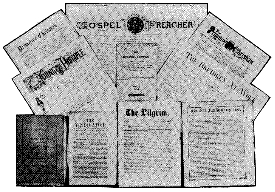 Early Brethren Publications |
from a hand-press located on the second floor of a spring house on a small farm in Ohio. During the next forty years, numerous other Brethren publications would also appear: Christian Family Companion, The Primitive Christian, Brethren's Messenger, and Brethren at Work, to name only a few. In 1883, the Brethren's Publishing Company was formed through the merger of Primitive Christian and Brethren at Work. Subsequently, they began issuing the Gospel Messenger which was adopted by Annual Meeting, that same year, as the official denominational voice, even though it continued as a privately owned company.
The next major development was the creation of the General Missionary and Tract Committee, in 1893, from the merger of General Church Erection and Missionary Committee and the Book and Tract Committee. Purchasing stock from the former stockholders allowed GM&TC to become the first 'denominational' owners of the Brethren's Publishing Company, which was later changed to Brethren Publishing House in 1897. After more than forty years of unofficial, privately owned publications, the German Baptist Brethren finally had their own denominational publishing company with the Gospel Messenger as the officially recognized denominational voice. During a later cultural shift, the word gospel was later dropped from the title in 1965 and the frequency of issuance changed from weekly to monthly.
A concern movement within the Church of the Brethren that was organized following the 1959 Annual Conference in Ocean Grove, New Jersey. About fifty men and women gathered to discuss their mutual concern for the large shift in direction that the Church of the Brethren had taken at the previous Annual Conference in 1958. These more conservative brothers and sisters perceived the new changes of the previous year would undermine the traditional heritage of the denomination. Over the next few years, they held informational meetings in various locations around the nation and began publishing a newsletter BRF Witness in 1966.
Some of their concerns about the Church of the Brethren have been:
Brethren Revival Fellowship is a non-profit organization incorporated under the laws of the Commonwealth of Pennsylvania, and governed by a board of Directors of ten members with a larger advisory board. All gifts are tax deductible. The organization is financed by means of gifts from individuals who sympathize with their concerns, and offerings received from churches, some of which include BRF in their annual budgets.
|
Brethren Revival Fellowship P.O. Box 543 Ephrata, PA 17522-0543 |
|
New Windsor, Maryland : In 1944 the Brethren Service Committee purchased the campus of the Blue Ridge College near New Windsor, Maryland. The name would change a few times in order to better clarify it's Brethren service involvement or target the denomination's ecumenical priorities, thus, it was known both as the Brethren Service Center and the New Windsor Service Center. Many people generally refer to this General Board owned complex of operation simply as New Windsor. It is also home to SERRV International, Emergency Response/Service Ministries, a Conference Center, On Earth Peace Assembly, and the denominations Information Service. In recent years, budgetary restraints have curtailed much of the operations, but the Center is widely known as the place were donated clothing is processed for shipment to needy individuals in all parts of the world. In full swing during the 1950s and 1960s, logo clad tractor & trailer rigs would regularly make scheduled rounds to district pickup locations, where boxes filled with all manner of apparel were loaded. Brethren from many congregations would affectionately ?go to New Windsor? to volunteer their time and energy by helping to sort and pack clothing for world-wide shipment.
Also located on the campus was the recently closed New Windsor Conference Center, which offered retreat facilities to local, national, and international groups. It housed modern conference rooms with full audio-visual capability, such as projectors, overheads, screens, flip charts, tables, and chalkboards. Due to enormous financial difficulties, the conference center was closed on June 4, 2012.
A service arm of the General Board involving specially trained and assigned volunteers to service projects throughout the United States and numerous foreign countries. Originally an opportunity for Brethren men to serve their country in lieu of military induction, the concept was initiated at the 1947 Annual Conference in Colorado Springs, Colorado, when 4-foot-10 Manchester College sophomore Ted Chambers, stood on an orange crate in order to speak into a floor microphone and deliver a plea to the delegate body. He asked the assembly to officially address the problem of the conscription of Brethren youth into the armed forces. A favorable response subsequently established the Brethren Volunteer Service, affectionately called BVS, gave Brethren men the opportunity to serve their country in lieu of military induction.
BVS now recruits men and women, young and old into one and two year projects, offering them nothing but hard work and a mere stipend to work in homeless shelters, foreign peace projects, Appalachian ministry, soup kitchens, and refugee resettlement programs in various parts of the world. Training formerly began only at the Brethren Service Center in New Windsor, Maryland, but applicants may now receive training in various locations. Trainees are introduced to basic concepts of service, and educated on the specific goals of the BVS program: "...advocating justice ...working for peace ...serving basic human needs ...maintaining the integrity of creation".
Many Brethren still quietly regard Brethren Volunteer Service as the model that President John F. Kennedy used when designing the Peace Corp in the early 1960's. Both programs centered around the youthful enthusiasm and idealism of young adults to make a positive difference in the world. Although the concept more easily lends itself to the young because they have not yet developed financial (mortgages) or personal (family) commitments, Brethren Volunteer Service is also available to older adults.
One of the eight administrative departments of the former General Board. It was responsible for issues involving social justice, witness, peace, hunger, the environment, women, and the activities of the Washington Office. Due to financial difficulties it was closed March 19, 2009.
 |
 |